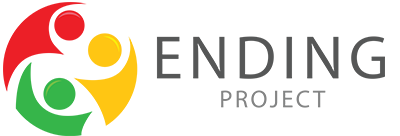ENDING (ICT & Early School Leaving. Developing a New Methodology to Empower Children in Digital WellbeIng and Critical ThiNkinG) is a strategic partnership that gathers five organisations from three European member states to jointly develop, test and implement a methodology based in peer learning to prevent the abuse of ICT´s and reduce early school leaving .The project will develop innovative educational tools that will serve the school community as an instrument to promote the good use of ICT´s, to identify relevant sources of information, appropriate to the age of the minors and that, at the same time, promote positive relationships between peers, encourage critical thinking, awareness of existing risks and at the same time promote respect for others.
The project addresses early school leaving, which it is still a major concern for countries like Spain (17,9%) or Portugal (11,8%), that are far away from the 10% target set by the EU. The main objective of this project is to contribute to the decrease and prevention of early school leaving. Various studies have identified that addiction and misuse of ICTs is among the factors that lead to ESL.
Asafe and welcoming environment is key for reducing early school leaving. Pupils should learn how to use digital tools in socially and pedagogically acceptable way. They need to learn how to regulate their own use of devices. This is why it is vital to early detect situations of abuse, misuse and addiction happening within and outside school.
In the digital era, skills and competences related to the use of the Internet are crucial. This is especially valid for disadvantaged people who often lack basic skills and knowledge in this field and don´t have access to tools, information and guidance on how to use ICT´s in a healthy way, thus avoiding misuse. This is why this project will involve participants with fewer opportunities, including children from minority groups, peripheral communities, with refugee or migrant background.
The Internet is an increasingly pervasive phenomenon. Approximately 4.1 billion people, in other words, almost 54% of the world’s current population, is now online (International Telecommunication Union, 2019). Whilst the Internet offers abundant opportunities for education, networking and communication as an information superhighway, it can also manifest risks, particularly regarding vulnerable populations such as children and adolescents. The Internet and ICTs have heightened the potential impact of existing forms of threats and risks. These include, among others:
- Children’s exposure to disturbing or potentially harmful content on websites and online forums and blogs.
- Proliferation of child sexual abuse images and materials, and with this, increased levels of harm for the victims and increased levels of profits for criminal enterprises.
- Development of virtual networks of individuals whose principal interest lies in child sexual abuse or child trafficking and other forms of exploitation.
- Inappropriate contact with children and ‘grooming’ by unknown adults.
- Cyber bullying, by means of email, online chat services, personal web pages, text messages and other forms of electronic content.
- Children introduced to gambling via video gaming platforms.
There have been several projects and programmes addressing this topic in the last couple of years. While performing the research for our project, we came across several EU projects dealing with social and digital inclusion and the fight against bullying and cyber-bullying
Although some of these projects deal with the responsible use of ICT´s, none of these projects and/or programmes use peer-learning strategy. Youngsters are just passive receivers and not active elaborators of the educational contents.
Our strategic partnership is innovative because it provides solutions for early school leaving, based on the experience of school age children, not only thinking about solutions to solve their problems, but also allowing themselves to identify the dangers and propose solutions, as well as to define the adequate tools for tackling the inherent risks of current online context. In order to achieve the overall objective of the project, we believe that activities based on role model methodology (defined as initiatives where someone inspires others to imitate his or her good behaviour) should be a crucial tool for ensuring interest and participation throughout the entire project. Thus, putting forward inspiring examples carried out by children themselves will make common values part of their everyday life and help building more prosperous, tolerant and inclusive societies.



